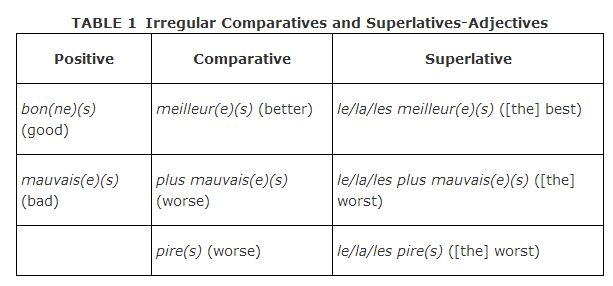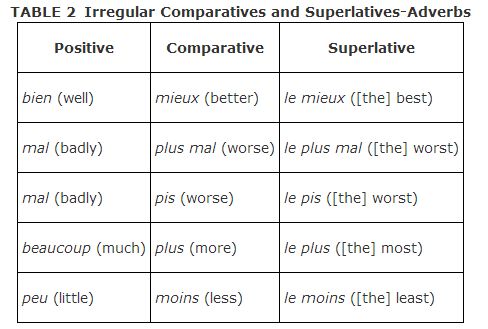Expressing Comparisons of Inequality
Comparisons are common in everyday conversations. When making comparisons of inequality, you judge that one thing is more or less superior than another; when making comparisons of equality, you express that both things are equal. Comparisons are made using adjectives, adverbs, and nouns.
Comparative and superlative (expressing the extreme degree) expressions allow for colloquial (informal) usage of the language. Many of them may be used to express “more” or “less.”
Comparisons of inequality use adjectives, adverbs, and nouns to show that two things are not equal. In English, comparisons take three forms:
The positive states the fact:
The comparative states “more” or “less.” In English, a comparative may end in ‐er:
The superlative states the most or the least — the extreme degree. In English a superlative may end in ‐est:
Positive
The positive states a fact using an adjective, an adverb, or a noun.
Comparative
In the comparative, the second element is introduced by que:
The second element of the comparative may be a noun, a stress pronoun, or a clause (a group of words). Keep in mind that adjectives must agree in gender and number with the nouns they modify.
Noun:
Stress pronoun:
Clause:
In addition, when using an adjective to make the comparions, the second element of the comparison may be an adjective: Elles sont plus ènervèes que fâchèes. (They are more annoyed than angry.)
Finally, when using either an adjective or an adverb to make the comparion, the second element of the comparion may be an adverb.
Superlative
In the superlative, “in” or “of” is expressed by de + definite article:
Using adjectives
Definite articles and adjectives agree in number and gender with the nouns they modify. If an adjective generally precedes the noun, it retains that position in the superlative:
The adjective may follow the noun, in which case the article is repeated: Mon père est le frère le plus sage. (My father is the wisest brother.)
Table 1 shows adjectives with irregular comparatives and superlatives:

Irregular comparisons and superlatives are used as follows:
Expressions using bon require special attention:
Using adverbs
Adverbs modify verbs so they require no agreement: le is always the article: Il apprend le plus vite de tout le monde. (He learns the most quickly of everyone.)
Adverbs with irregular comparatives and superlatives are shown in Table 2:

The expressions plus mal and le plus mal are generally preferred to pis and le pis.
Using nouns
Plus and moins are adverbs and are, therefore, always preceded by le, despite the number and gender of the noun being compared: Elle chante le plus de toutes les filles. (She sings the most of all the girls.)